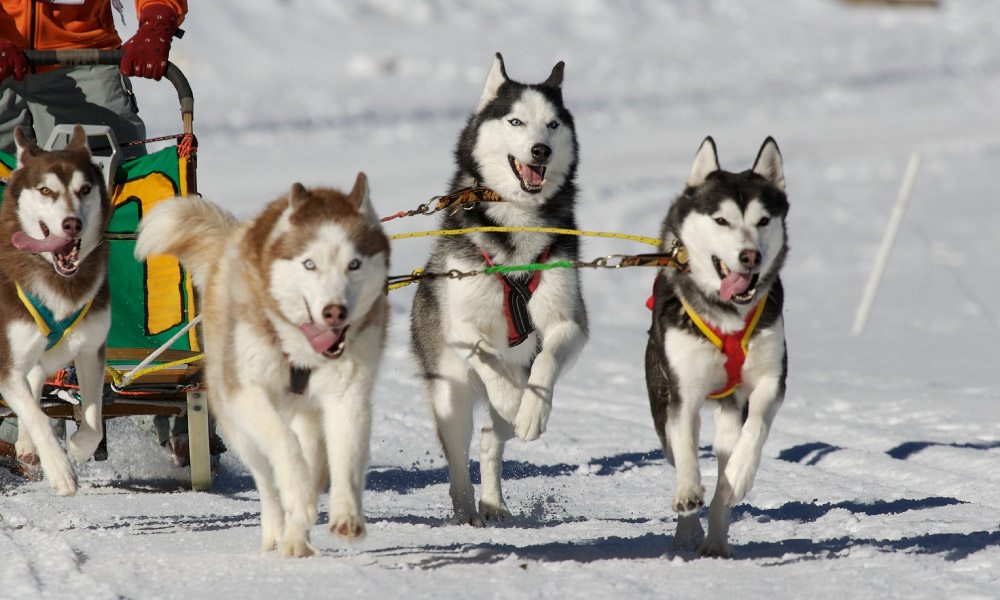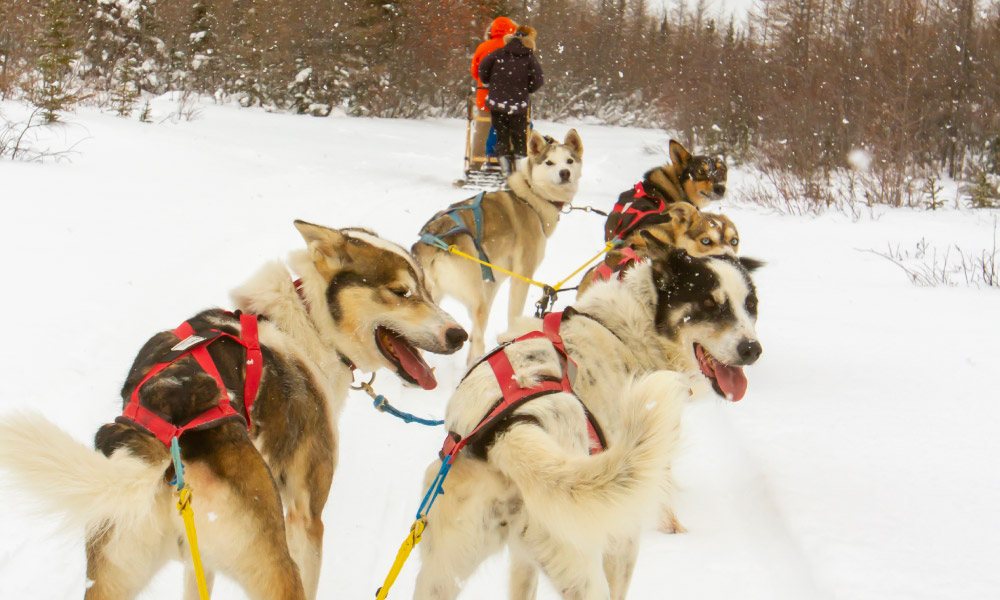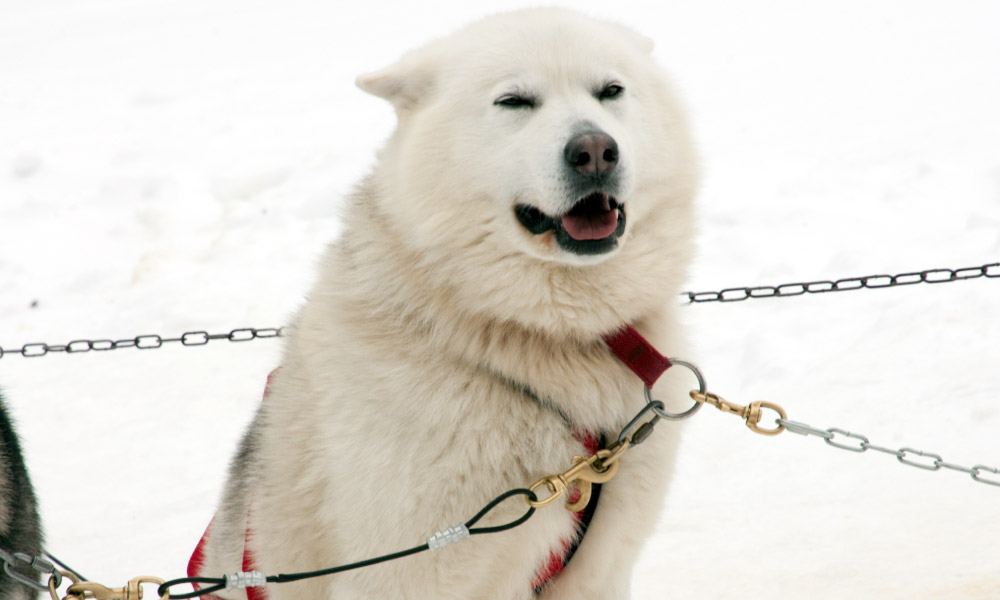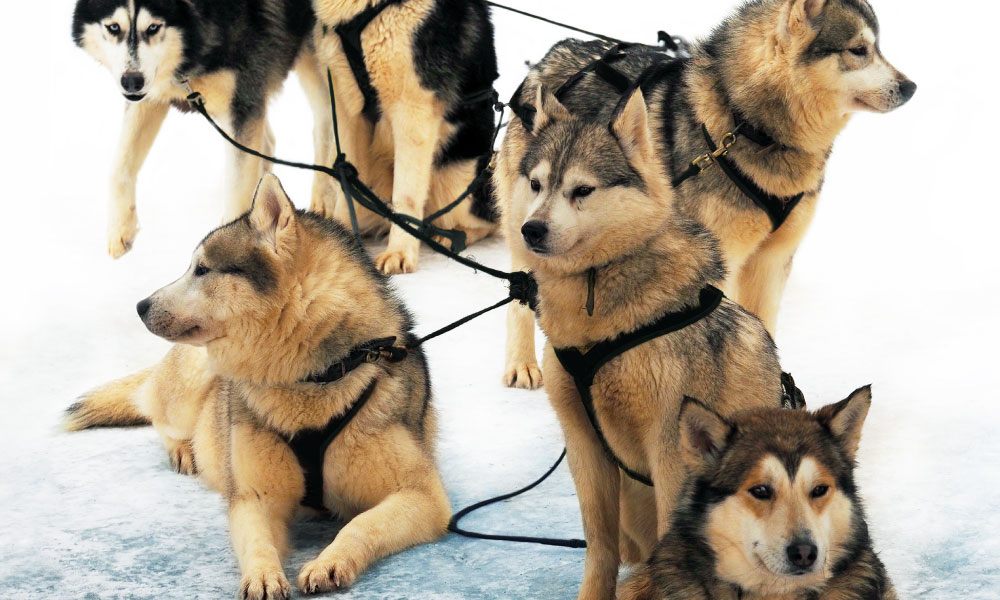Mushers trust the Dogs: The Dogs trust the Musher
Mushers trust the Dogs: The Dogs trust the Musher
There has been an usual amount of conversation about trust in the workplace lately. The topic has become so popular that some of the larger consultancies have established actual centers for the study of trust. There are a number of reasons for this enhanced focus on trust – the pandemic reacquainted us with problems of trust – whom (or what) do you trust, why do you trust them, how do they demonstrate trust-worthiness, etc. Equally, the remote and hybrid work models have amplified our concerns about trust – as a worker, do I trust that leadership and management are making the right decisions about the direction of the company, or more specifically, about me and my career? And in the inverse, the corporation concerns itself with issues like, “can I trust my workforce to do the work at hand, to put in a full day’s or week’s worth of work, and to be dedicated to our business and its mission?”.
In business, just as in dogsledding, trust is earned. Trust is itself a somewhat of an amorphous concept, a “I know it when I see it/feel it” sort of emotional calculus, but there is nonetheless a tangible, observable dimension to trust, which is largely represented via a set of “elements” which are outlined below, those being Integrity, Competence, Reliability, Benevolence, Transparency, Loyalty, Shared Values, Vulnerability, Mutual Respect, Open Communication, Consistency, and Accountability. It’s useful to look at the dogsled team vs. Musher relationship to examine how that aligns with human vs. human interaction in the workplace:
| Element of Trust | Description | Musher / Dogsled Interaction | How to Practice and Exhibit in the Workplace |
| Integrity | This refers to the belief that the trustee will act honestly and adhere to moral and ethical principles. It’s the confidence that someone will do what’s right. | Dogs respond to consistent, honest signaling and handling, trusting the Musher to guide them correctly. | Practice honesty in all interactions. Avoid gossip and speak truthfully. Adhere to a personal code of ethics and stand up for what is right. |
| Competence | This pertains to the trustee’s ability, knowledge, and skills to perform a specific task or role effectively. | Dogs need a Musher skilled in navigating and sled handling to feel secure and follow directions confidently. | Continuously update and improve your skills. Seek feedback and be open to learning. Take on challenging tasks to demonstrate capability. |
| Reliability | This is the belief that the trustee will consistently deliver on their promises and commitments. It’s the predictability of someone’s actions based on past behavior. | Consistent routines and commands from the Musher help dogs understand expectations and feel secure. | Honor commitments and promises. Set realistic expectations and deliver consistently. Apologize and make amends when you fall short. |
| Benevolence | This involves the belief that the trustee has good intentions and will act in the trustor’s best interests, even when it’s not required. | Dogs thrive under a Musher who shows genuine care, enhancing their willingness to work and cooperate. | Show genuine care and concern for others. Go the extra mile to help someone. Put others’ needs above your own when appropriate. |
| Transparency | This refers to the openness and honesty in sharing information. Trust is often built when parties are transparent about their intentions, actions, and outcomes. | Dogs can sense and react positively to transparent emotions and intentions, fostering a harmonious sled team. | Be open about intentions, thoughts, and feelings. Share information freely unless it’s confidential. Admit mistakes and avoid hiding things. |
| Loyalty | Loyalty is the assurance that the trustee will prioritize the trustor’s interests and not harm them, even in the presence of potential personal gain. | Dogs require loyalty from their Musher for a deep-seated sense of security and attachment. | Stand by friends and colleagues during tough times. Avoid situations that present conflicts of interest. Prioritize long-term relationships over short-term gains. |
| Shared Values | Trust is often strengthened when parties have shared values, beliefs, or goals. This common ground can provide a foundation for mutual understanding and collaboration. | Shared goals, like a successful run, create a bond and sense of purpose between the Musher and the dogs. | Actively listen to others to understand their values. Find common ground and build on it. Collaborate on projects that align with shared beliefs. |
| Vulnerability | Trust inherently involves taking risks. The trustor makes themselves vulnerable, believing that the trustee will not take advantage of that vulnerability. | A Musher showing vulnerability can foster a closer, more intuitive connection with the dogs. | Open up about personal feelings and fears. Take calculated risks in trusting others. Show that you’re human and have imperfections. |
| Mutual Respect | Recognizing and valuing the worth of the other party can significantly enhance trust. It involves treating others with dignity and consideration. | Mutual respect ensures dogs feel valued and understood, leading to better cooperation and morale. | Treat everyone as equals, regardless of status or background. Listen actively and validate others’ feelings. Avoid interrupting or dismissing others’ opinions. |
| Open Communication | Effective and open communication facilitates understanding, reduces uncertainties, and fosters trust. | Clear, consistent communication from the Musher is crucial for the dogs to understand commands and react promptly. | Encourage feedback and open dialogue. Avoid sugarcoating; be direct yet respectful. Practice active listening without immediately jumping to solutions. |
| Consistency | Repeated interactions that yield positive outcomes can strengthen trust. Over time, consistent behavior establishes a track record that can be relied upon. | Dogs need consistent behavior and training from the Musher to develop trust and predictability in their responses. | Establish routines and habits that others can rely on. Avoid erratic behavior; be predictable. Reinforce positive behaviors over time. |
| Accountability | Taking responsibility for one’s actions, especially when things go wrong, can bolster trust. It shows that an individual or organization is willing to address mistakes and rectify them. | The Musher’s accountability in care and decision-making reassures the dogs, enhancing their trust and cooperation. | Own up to mistakes and take corrective action. Seek feedback regularly and make improvements. Set clear responsibilities and follow through on them. |
So, from the above, it is evident that the methods and behaviors by which dogs and humans develop a special, trusting bond is not unlike the methods and behaviors by which employees may develop trusting bonds in the workplace.
One thing to note – dogs are of course simpler creatures than humans – but one of the strongest similarities you can observe in the building of a trusting relationship is simply the old adage “Mean what you say and say what you mean” – consistently. In fact, trust may be built more upon consistency than any of the other elements discussed above. Are there elements missing that you would add? Let me know in the comments field!
New? Start here.
Stay in the Know
Sign-up to get our latest articles delivered right to your Inbox.
"*" indicates required fields



